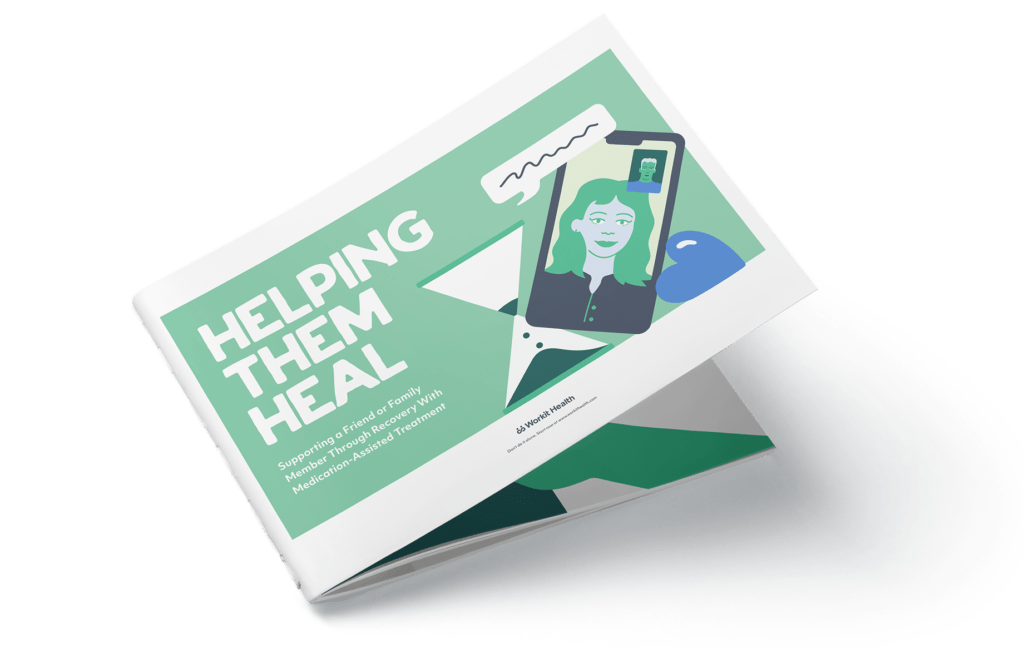The holiday season can be challenging, especially if you’re new to recovery.
Our routine becomes disrupted as we cram lots of social events into an increasingly busy schedule, and we can struggle to navigate challenging family dynamics without numbing agents. By the end of the holiday, you may be feeling exhausted, triggered, or upset about a family disagreement.
I’ve spent the past seven and a half years of my recovery learning how to navigate relationships — with family, friends, and romantic partners. I’ve found familial relationships are by far the hardest during any time of the year, but they are particularly challenging during the holidays.
We’ve known our families for a lifetime and love them dearly. We care about their feelings and often listen to their opinions and advice without question. But just because our relationships are rooted in love doesn’t mean they aren’t wrought with dysfunction. There is a reason they call addiction a family disease — it affects the whole family unit. Even though some members may not suffer from substance use behaviors they may suffer from codependency and other dysfunctional behaviors. That’s why recovery needs a family approach, too.
I have spent many years in therapy trying to understand family and relational dysfunction. I’ve unpicked my relationship history and learned how to set strong boundaries so that I put my needs and my safety before others. Putting others’ needs before my own is simply self-abandonment — a hallmark of early recovery.
Some of the ways we abandon ourselves in relationships are:
-
Allowing our boundaries to be crossed with no consequence
-
Putting others’ needs before ours
-
Feeling responsible for everyone having a good time
-
Acting on our desire to people-please, in fear of letting others down
-
Not speaking up out of fear of rejection or admonishment
-
Taking responsibility for others bad behavior
-
Compromising our needs to fulfill others
-
Saying yes instead of saying no
The downside of putting others first is that we don’t grow. We ultimately hurt ourselves, rather than heal ourselves. In its most basic form, recovery is about healing and repairing our self-worth. When we set boundaries, we’re also telling ourselves that we are worthy enough to put our needs and our safety first. And the practice of putting ourselves first improves self-esteem, confidence, and self-respect. From a place of worthiness and respect, we’re less likely to accept people’s bad behavior and get embroiled in dysfunction. But it does still happen from time to time — we are human, after all.
Therapist and boundaries expert Nedra Glover Tawaab goes a step further and explains:
-
“Boundaries are a safeguard to over-extending yourself.
-
Boundaries are a self-care practice.
-
Boundaries define roles in relationships.
-
Boundaries communicate acceptable and unacceptable behaviors in relationships
-
Boundaries are perimeters for knowing what to expect in relationships.
-
Boundaries are a way that we ask people to show up by upholding our needs.”
How to set boundaries
I’m not going to lie to you — setting boundaries is hard at first. But, my word, it’s freeing once you start. Soon you’ll wonder why you hadn’t started earlier! The key is being brave and asking for what you need. Here’s a step-by-step guide:
-
Preparation. What is the value, tolerance level, role, or need that you’d like to have upheld? Some of mine include: not talking about my body image, weight, food choices, or health with my family. Others are around communication style, unsolicited advice, and people trying to fix me. I only attend events that I really want to go to, and do so for a defined duration. I also have no qualms about canceling on the day of the event if I don’t feel up to it. I have to really consider if have the emotional and physical capacity to give my energy to an event. If I don’t, then I politely decline. If you’re ever in doubt, don’t go.
-
Call ahead to set the boundary. Tell your family your boundary before you see them. Calmly explain that it’s important to you that you have quality time together, but you know certain topics (be specific) can cause a heated discussion so you’d rather not discuss them during your trip. Your boundary could be that if someone has too much to drink you’ll leave, or if you feel that your family is shaming you for looking a certain way.
-
Set a consequence. When you are setting your boundary, explain that if they start to talk about the topic, you’ll gently remind them of your wishes. But if they continue, explain what you will do next. “If my boundary isn’t respected, then I’ll leave.”
-
Follow through. It’s crucial that you stick to your boundary. Otherwise, you won’t be taken seriously in future.
Sometimes, it’s as simple as those few steps. Other times you’ll have to navigate difficult people. Don’t forget that addiction is a family disease. There have been times that I have set boundaries and the other person has been abusive or thrown a tantrum, taking the boundary as some kind of personal affront and criticism. I’ve been reminded of all the things they’ve done for me when I was struggling, that they care for me, and that they should be able to discuss anything that’s on their mind — as if my misfortune has stored some unearned credit for them to treat me as they wish. I’ve also experienced sulking and passive aggressiveness.
There’s a common saying for people who react to boundaries: the only person who objects to your boundary is the one who benefited from you not having it in the first place.
Once you look behind the other person’s tone and language, you can see that they’re confused and that they feel threatened. As uncomfortable as it can be in those situations, it’s important to remember that you are changing for the better and the other person needs time to catch up. I’m not suggesting that you relinquish your boundary or put up with abusive or emotionally draining people, but I am saying to try to show compassion where possible. But if you feel physically or emotionally threatened, leave immediately.
Remind yourself when dealing with difficult people that your needs come first. It is not selfish or ungrateful to value yourself and ask for your needs to be met. Staying strong in this situation is key. It’s a real turning point in recovery when we uphold our values and put our needs first. Sometimes that means losing a relationship. Ultimately, if a person wants to stay in your life and values you, they’ll respect your boundaries.





